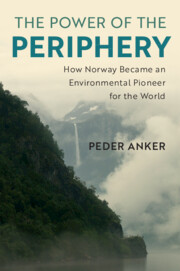Western contemporary educational systems tend to re-produce, and thus maintain, the existent non-sustainable social structures, failing to live up to the present critical times. Their aim is confined to preparation for financial “success,” whereas they disregard the imminence of environmental crises and global social shifts and are rooted in the human sense of superiority over nature, that is, anthropocentrism. The present article acknowledges the need for reconsideration of humans’ place and role in the ecosystem and focuses on the importance of a more ecocentric pedagogy. A holistic in-service teacher training was designed and implemented in Greece, inspired by the wild pedagogies touchstones, mainly the notion of nature as co-teacher. Twelve participants met for the course of a year to immerse themselves in nature-centred, affective, relational, “wild” experiences. Changes were recorded using pre/post-semi-structured interviews to inquire into participants’ perceptions of self versus Self (i.e. acknowledging oneself as part of a larger whole) and perceptions of (environmental) education. It appears that deep, relational nature experiences (a) can shift the perception of individualised self towards Self, (b) can shift the perception of teacher identity towards that of a change agent and (c) can set ethics and values education as a priority among trainee-teacher participants.
